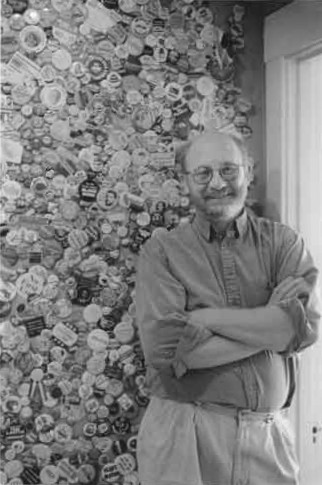John Laird
|
John Laird (D) State Assembly, District 27 Santa Cruz, Monterey & Santa Clara Counties, California 450,000 constituents |
Career Overview Elected to the City Council 1981 (came out in 1983) Re-elected in 1985 Elected by the City Council to serve as Mayor 1983 - 1984 and 1987 - 1988 Elected to the Cabrillo College Board of Trustees in 1996 Elected to the State Assembly November 2002 Re-elected 2004, 2006 |
John Laird says that when he became one of the first openly gay mayors in the nation it stirred much more reaction than when he and Mark Leno made history by becaming the first openly gay men elected to the California State Assembly 20 years later.
Essay by John Laird for Out and Elected in the USA
Note: this essay was written while John Laird was serving on the Cabrillo College Board of Trustees.
I recently had a meeting with a new employee where I am a personnel manager. After our business, he had a personal comment. He mentioned that fifteen years before, as an 18-year old college student struggling to come out in a more conservative part of California, the story of my election as an openly gay Mayor had made the local news. His friends were all talking about it, and he wanted to thank me for the difference it made for him at that time. I still hear stories like this.
I am in my fifteenth year as an elected official and have been out for most of that time. It is hard to characterize a career more focused on local issues such as earthquake rebuilding, water policy and school bond campaigns. But the high point was my election as one of the first openly gay mayors in the country in 1983, and the low point was my unsuccessful try for the California legislature in 1993. I am not fifty yet, so the entire story has not been written.
My Andy Warhol fifteen minutes of fame was in 1983. Despite being clear about my sexuality prior to that time, the newspapers were limited in their references. In 1983, just before my selection as Mayor by the City Council, a reporter asked if I was gay. I said yes, and embarked on an unplanned media roller-coaster ride. I was on the front page of most California newspapers and made the Paul Harvey news. San Francisco television reports referred to me as "an avowed homosexual." And I was invited to speak at the Fifth Milk/Moscone candlelight march.
I had been out to my family for awhile, but had not realized that my parents were not out about it to their friends. As the story beamed into their San Francisco Bay Area town, my brother called to say, "It's like a funeral here. People are bringing over casseroles."
But then the letters started. "You make me proud of my three gay sons," wrote one mother. A teacher who worked with my Mom wrote her about how she had snickered at reports of gay life in San Francisco, but wouldn't any more knowing the loving family that I had come from. I had a successful year as Mayor and was top vote-getter in my re-election to the City Council two years later. I thought the matter of my sexuality had been put to rest.
But in my 1993 campaign for the State Assembly, I had to come out all over again. The district contained 375,000 people and included a second county where I had never served in office. The fact that no gay man had ever served in the California legislature (still true) put the issue in the news throughout the campaign. Not in office at the time, I didn't have the stories about zoning, water, or transit to reinforce my experience in public policy. Being gay seemed to be my major platform plank. The San Jose Mercury News editorial endorsement of another candidate indicated that gay issues would be a major focus for me if elected. My hometown newspaper profile the week before the election devoted a major portion of its content to the fact that I was gay, with a headline about my struggle to keep from being perceived as a single-issue gay candidate.
There was humor as well. A woman tabling for me in front of a local supermarket was asked, "isn't he a lesbian?"
She was furious with the implications of an opponent's emphasis on “family” in a television ad, and said, "where do they think you came from?"
I was endorsed by three of the five daily newspapers delivered in the district, raised $190,000 in a short time, was helped significantly by the Gay and Lesbian Victory Fund, and ran a very credible race as runner-up on the Democratic side. I have since served five years on the College Board, broadening my experience, and have been urged to seek higher office again.
I am proud of my career and hope my experience has hastened the day when things are different in this country for gay and lesbian candidates.
Return to Out and Elected in the USA: 1974-2004 index • Go to next article
For information on a touring exhibit version of Out and Elected in the USA: 1974-2004, contact Ron Schlittler at rlschlittler@verizon.net.
